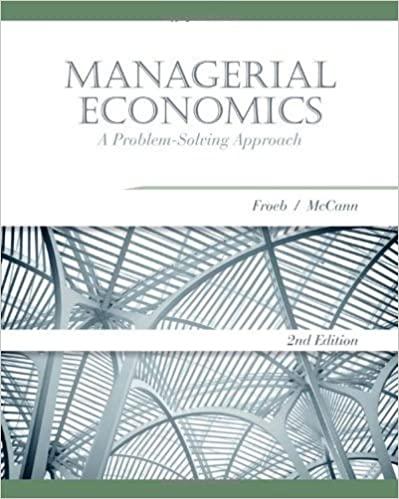Question
Please comment on the post by offering suggestions, asking questions, etc. Most recently, I was reading about the turmoil in the Japanese economy and how
Please comment on the post by offering suggestions, asking questions, etc.
Most recently, I was reading about the turmoil in the Japanese economy and how Japan has been transitioning from a deflationary environment to an inflationary environment. The South East Asian recession had significant ramifications on the Japanese economy. This was primarily caused by the surge in property prices and the stock market during the 1980s, which eventually led to the bursting of the bubble in the 1990s. Consequently, Japan experienced high unemployment rates and deflation. This has also led to slow economic growth since the 2000s, which can be attributed to deflation and an aging population. Moreover, prior to this period of inflation, the Bank of Japan maintained near-zero interest rates for more than 20 years in order to address deflation.
As of July 28th, 2023, the Bank of Japan is considering the possibility of raising interest rates to combat the recent rise in inflation. However, the head of the BOJ is concerned about the potential increase in financing costs for its debt, as Japan holds trillions of dollars in debt. The decision of the head of the Bank of Japan (BOJ) to continue its monetary policy easing for the time being has caused the Japanese Yen to depreciate against the U.S. Dollar. As a result, Japanese assets have become less attractive to investors. Currently, one JPY is equal to 0.0069 USD. To calculate the rate of appreciation or depreciation of a currency as a percentage, we would use the formula for percentage increase or decrease. This formula calculates the percentage change in exchange rates: (new exchange rate - old exchange rate) / (old exchange rate) * 100%.
One example of currency appreciation would be the New Zealand Dollar appreciating against the U.S. dollar. This can be attributed to New Zealand's robust economy and the decision of the Reserve Bank of New Zealand to raise interest rates in response to the increase in inflation. It is worth noting that the Reserve Bank of New Zealand has been implementing this strategy at a more aggressive pace compared to the Federal Reserve Bank. This has made investing in New Zealand bonds and treasuries more attractive for investors. Moreover, New Zealand has entered a technical recession due to the recent interest rate hikes, and this could have a negative impact on its currency. Currently, 1 NZD is equal to 0.60 USD.
References:
Bank of Japan Edges Toward Letting Rates Rise - The New York Times (nytimes.comnewLinks to an external site.
New Zealand's economy dips into recession as higher interest rates bite - ABC News (go.com)
Step by Step Solution
There are 3 Steps involved in it
Step: 1

Get Instant Access to Expert-Tailored Solutions
See step-by-step solutions with expert insights and AI powered tools for academic success
Step: 2

Step: 3

Ace Your Homework with AI
Get the answers you need in no time with our AI-driven, step-by-step assistance
Get Started


